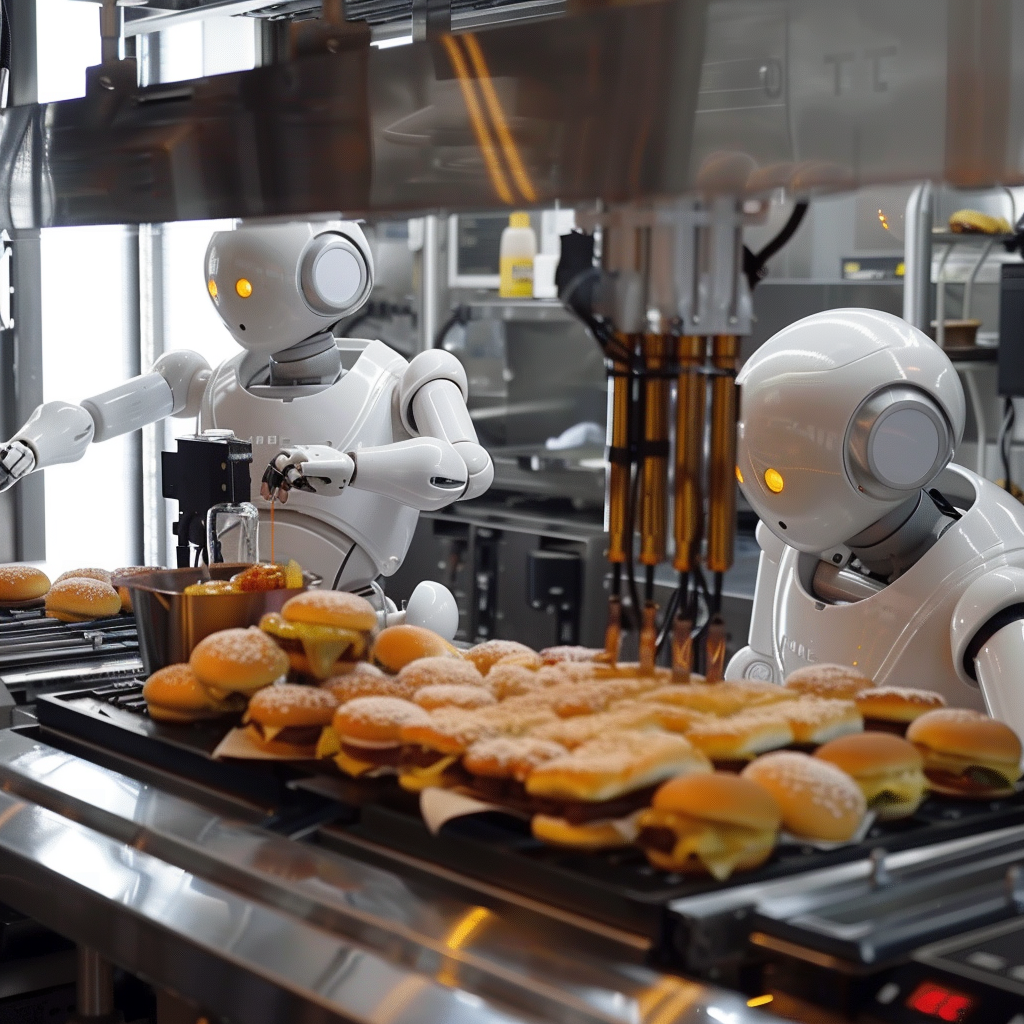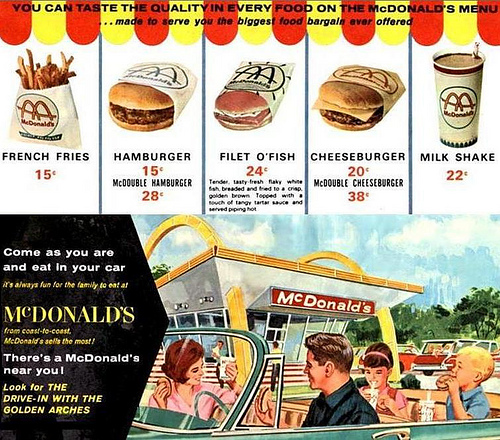
What Happens When No One Can Afford Anything?
9 Comments“That is going to cost you..”
Six or seven years ago, we resurfaced an exterior flat roof deck for about $5,000. It was guaranteed for a “lifetime,” but, apparently in California that really means three years. I haven’t asked my legal friends for confirmation, but that sounds about right, given how confident one roofing contractor appeared when I complained about the “lifetime” deck leaking after five years. The cost to resurface the same deck now, less than six years later? $18,000.
“How long will it last?” I asked.
“A lifetime.”
It was what it was and it is what it is. In this world of “Russian collusion” and “safe, effective ‘vaccines’,” he seemed to be saying — and I had to admit — that the price of everything would always be going up, by virtue of our collective commitment to economic insanity.
A contractor I use around here for heavy equipment jobs told me he’s paying 40% for his workers compensation policy. For every $100 he pays his employees, he has to come up with an extra $40 for the insurance company to cover injuries on the job. The same contractor told me an employee under the age of 25, with a perfect driving record, added $2300 a month to his vehicle insurance.
These days, in California, anyone who hires minimum wage employees is vulnerable to a number of problems. For entirely understandable reasons, your employees may prefer making $20 an hour at Subway. Likewise, the people who have been with you for a few years resent new hires coming on at wages very close to theirs.
Improving the lot of entry level workers by increasing the minimum wage is something like trying to fly by pulling up hard on your underpants. Wages go up. Prices go up. People can’t buy groceries. Wages go up. Prices go up, and the whole thing starts over again. Pull up harder on your underpants and see if you take wing.
You would think reasonably intelligent people might understand this, but they don’t. Policy, these days, has a very “nurturing” dimension, without the slightest regard for “feasibility.” We can spend billions of dollars improving the infrastructure of places like Afghanistan, but have you ever driven the I-40 between Kingman and Flagstaff? This is a major interstate so dangerous they have to post signs about the potholes.
Here on the farm, like everywhere else, the price of everything from power to insurance to basic food stuffs has gone crazy. (Mary priced a single rib-eye steak in the grocery store a few weeks ago. $17.50.) I just priced the entry-level, where’s-the-beef burger at a local corporate fast food joint. $8.50. A combination meal was $15-$17. In 1965, a McDonald’s hamburger was $0.15. GrubHub wouldn’t let me source a McDonald’s hamburger, but a Wendy’s Big Hamburger is $6.24 in Beaumont, California (April, 2024). California minimum wage in 1965 was $1.30, or 8.7 burgers an hour. Today’s minimum wage worker is getting between 2 and 2.5 burgers an hour. Try this with just about anything you buy, or any asset you consider a necessity. The average American home cost a minimum wage worker, in 1965, 16,000 hours of labor. Today the average American home would cost him more than 54,000 — 26 years of work, vs 7.5 in 1965. (Thank a NIMBY the next time you see one.)
The reasons behind this decline are not terribly difficult to assess. If well-meaning environmentalists don’t want more carbon dioxide in the air, (which is just bad science all around), they encourage policy makers to increase the price of gasoline. When the price of delivering goods goes up, the price you pay at the counter goes up. Well-meaning community planners limit new home growth and–welp!–home prices skyrocket. If “well-meaning” family advocates want mom and dad to have weeks of paid parental leave, the cost of making a widget goes up. If well-meaning government agencies believe small business needs to be regulated more thoroughly, small business spends more on regulation and they charge their customers more for their product. Well-meaning labor advocates want entry level workers to make more, and pretty soon a hamburger will cost you $35. Finally, if our federal overlords really believe we have to rebuild (and then abandon) Afghanistan, or if we have to pay for Ukraine’s war with Russia, guess why you will have to come up with more money to fix America’s broken interstates and hemorrhaging social security?
It’s all “well-meaning.” It’s all “nurturing.” But in the end, it’s profoundly cruel, because it won’t work forever. Something has to break, and it might be you, when you can’t afford a home or a meal.
Around here, I’m going to have to increase our prices. I’m going to have to review every menu item, every dinner show, every field trip and I’ll have to start raising them more every three months until you folks have to make some sort of Maslow’s hierarchy decision: Heat the house or go pick some u-pick apples? Pay for my car insurance or learn about the American Revolution?
Obviously, I know where we will be in that hierarchy and when the price of “nurturing” puts us out of business, it won’t be because we wanted to go. There just wont’ be any customers. They will have been “nurtured” to death.
Tags: California, Inflation, nurture, wages, well-meaingCategorised in: Farm Journal
This post was written by Jim Riley


9 Comments
Truth
Thank you, kind sir, for your words. These words speak the truth, they speak of courage, they speak what all Americans need to hear.
Sadly, a majority of Americans don’t want to listen. They want to act like everything is ok. Yet, our America is being destroyed right before our very eyes.
We all need to Stand Tall, Stand Up for the “Land We All Love”.
We support you. We will support your business. We need more Courageous people like YOU.
God Bless America.
Truth!
Every word you said is the truth! We need to stand firm and speak out!
Thank you!
And yet somehow, other countries manage to do it. China has mandatory maternity leave, high gas prices and more red tape than you ever knew existed. And yet, the cost of goods tend to not fluctuate.
California’s financial woes have more to do with lack of housing and simple greed than paying workers a living wage.
Prices always inflate before wages and the two are rarely if ever in tandem. had nothing to do with workers salary. The workers need to eat just like you. The difference is so long as you get your steak and caviar, as well as get a bite of their taco, you don’t care about what happens after you’re full.
Using Communist China as a policy example for _anything_ is an example of a surrender to either ignorance or evil. China is a country that harvests human organs and leaves Covid-quarantined citizens in burning buildings. Have you read anything about the sort of factory riots that have erupted in China, based on abysmal working conditions and hours? (There’s a reason Ricky Gervais ridiculed companies like Apple.) We shouldn’t forget that China, in its modern history, has been willing to slaughter its own population in numbers that dwarf the Holocaust. Collectivizing agriculture in the Great Leap Forward literally saw Chinese families eating their own children. No, don’t ever use China as an example for economic or political policy.
Using terms like “living wage” doesn’t help, because the formula for such a thing is hopelessly vague. A “living wage” to a teenager living at home might be $7.25. A single mother might get by on more. A recent college graduate, with an inflated sense of their market value, might think they deserve $35 an hour. The market is God’s gift to a fallen world, because it matches buyers of labor with sellers of labor without having to engage in endless, pointless discussions about who deserves more, and why. Anyone who thinks that wage increases don’t push prices higher has never had to run a company answering to the buying public. You simply cannot raise wages, across the board, without passing that increase on to consumers. At times, the market will bear it, and with many products, the customers just stop buying — and the workers wonder why they are no longer employed.
The taco/caviar metaphor is a little strained. Eating other peoples’ tacos would be gross, and, personally, I never acquired a taste for caviar.
Keep trying..
I love reading these kool blog entries. Why didn’t you save your $2 million PPP loan? Better yet why not just sell the farm and downsize, that’s a cool $3 million right there, maybe more. You do a lot of complaining sir. Especially when you are more well off than I or many of your fellow Americans will ever be. Check yourself.
I realize Clark will likely be constitutionally unable to change his mind, but for the sake of those reading..
We need more complainers in California, and we need more politicians listening to those complaints. We just lost more than 9,000 structures to fire because the complainers were ignored.
The PPP program (“Paycheck Protection Program”) was just that. It was designed to keep people employed, and that’s what we did. The colossal incompetence of the federal government and the public health establishment, ignoring the sane advice of people like Stanford’s Jay Bhattacharya, issued lockdowns that would have utterly destroyed small business if the Feds didn’t step in to cure their own incompetence. I don’t count myself as “wealthy,” but I respect wealthy people because they are wealthy, usually, for a good reason. The next time you want poor people to be better off, you just might pay heed to how a wealthy person complains, instead of accusing him of ingratitude.